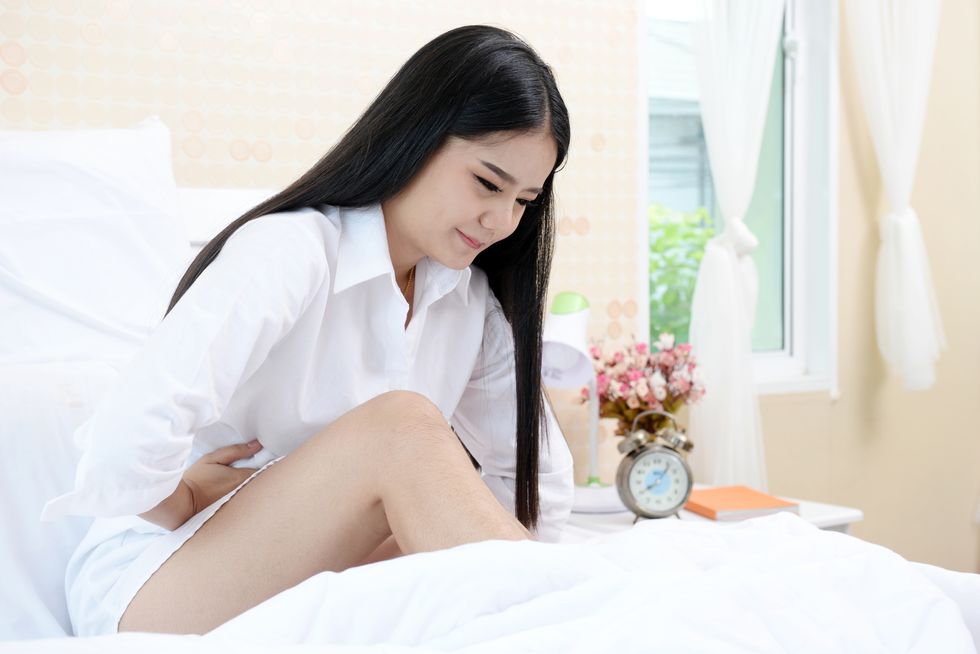As common as endometriosis (or "endo") is—affecting an estimated one in 10 women of reproductive age—its diagnosis is often delayed, sometimes by as much as six to 10 years.
Why the delay?
Many women may be unsure about seeking help for endo since one misconception is that its symptoms are "all in your head."
But the pain of endometriosis is anything but normal. It is very real and can be quite severe. And to complicate matters, pain may not always be present, which can make endo even more difficult to diagnose.
Another possibility: lack of awareness. There are so many ways that endometriosis can present itself that it's not too surprising that many women—and even their healthcare professionals (HCPs)—may not be aware of the multitude or complexity of its symptoms.
In fact, many symptoms of endometriosis overlap with other rather common disorders. For example, diarrhea and constipation, two common symptoms, can be caused by many gastrointestinal disorders, like irritable bowel syndrome or Crohn's disease. And if a woman experiences pain during sex, fatigue, bloating, pain during urination, pain with bowel movements, and/or pain in the lower back, neither she nor her HCP may consider endometriosis a possibility.
Women who seek help for their endometriosis symptoms may be treated with nonsteroidal anti-inflammatories, oral contraceptives or hormonal drugs. These may help alleviate the pain for some women, but many women still experience pain despite treatment. In these cases, it's not until the condition progresses and symptoms worsen that surgery might be considered.
Finally, there are few diagnostic methods to detect endometriosis. Laparoscopy is the only way to confirm the diagnosis and stage of endometriosis. It's essential for anyone who thinks they might have endometriosis to seek help from an HCP, since they are the only ones who can adequately diagnose the condition. Extreme pain and discomfort are absolutely not normal and should be addressed.
If you're embarrassed, it might be helpful to talk first to a close friend or family member about your pain—or ask them to accompany you on your next HCP visit. During your visit, make sure you come prepared with something to take notes with and a full list of information to share with your primary care physician or gynecologist. This should include a list of all your symptoms (even those you think may not be related), how severe they are, when they began and how often they occur. It's also important to be aware of what makes them better or worse and if they seem related to your menstrual cycle. Here’s a doctor discussion guide that can help.
Also bring a list of any medicines, vitamin supplements or herbs you take including your doses and how often you take them, plus copies of any related lab or test results.
And know that it's perfectly OK for you to ask questions of your HCP; your relationship should be a two-way street. Some questions to consider include:
How can you diagnose endometriosis?
What are my options for medication to manage it?
Are there any alternative treatments?
What are the benefits and risks of treatment?
How can we know if the treatment is working?
If I do nothing, what would happen?
What are the side effects of the medication(s)?
Would you suggest surgery?
Is it possible I might need additional treatments in the future?
Remember, there are many options for treating and managing endometriosis.
This post was created with the support of AbbVie. For more information, visit SpeakENDO.com
Sources:
https://www.mayoclinic.org/diseases-conditions/endometriosis/diagnosis-treatment/drc-20354661
https://endometriosis.org/news/research/why-the-diagnostic-delay/
https://endometriosis.org/resources/articles/talking-with-your-doctor/







